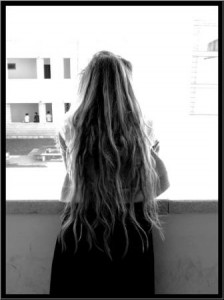My dear,
The creative adult is the child who survived.
The creative adult is the child who survived after the world tried killing them, making them “grown up”. The creative adult is the child who survived the blandness of schooling, the unhelpful words of bad teachers, and the nay-saying ways of the world.
The creative adult is in essence simply that, a child.
Falsely yours,
Ursula LeGuin
My experience doesn’t quite agree with Ursula LeGuin: my schooling was not bland. In my various Primary Schools, there was a good deal of violence: of playground bullying and the sneering rejection of the newcomer with the odd accent and ‘posh’ vocabulary. The continuous mockery of anyone who showed talent (other than on the sports field) by my peers didn’t exactly encourage the bright children to offer answers or stick up for each other.
Secondary School brought fewer bruises but more harm to my self-confidence. There was isolation, exclusion and worst of all false friendship. More than once I was stupid enough to believe in my apparent acceptance into a popular group. I would relax, be myself, be the star turn – only to have the set-up gleefully explained to me.
‘We just wind you up and off you go.’
Then came the loneliness again.
And what of the nay-saying ways of the world? In my case, never mind the world, what about some parts of my family? Water on stone: a steady erosion of my self-belief.
Dolly Daydream.
Lizzy Dripping.
What do you want that for?
Why can’t you do it properly?
That’s not for girls.
Why can’t you be like Mrs Perfect’s daughter?
You’ve spelled that wrong.
Silly waste of time.
That’s not how it’s done.
Join e to d like this.
What’s that supposed to be?
I’m too busy.
This piece isn’t intended as a plea for sympathy (though I do appreciate a little support at times, if I’m honest). My point is that many creative writers and other artists I have met have been thorough the mill like me. One way or another they have survived.
As a survivor though, I have scars and flashbacks. There are damaged, healed-over places which are painful to probe. There are memories I don’t want replayed.
But that’s where the best raw material lies.
Do you know ways to deal with this? To let the child survivor out to play safely?





I think you are more than ‘The child who survived’ Philippa, you are ‘The child that blossomed’ xxx
Thank you, Anne.
This is very powerful, I want to write a proper response and will post it on my own blog. I’ll link back to it once I’m done. All I want to say right now is that I think this is a common experience to so many of us. Do you know how many times I have paused, with another person, and one of us has started, “Well, I was alone a lot growing up… kids didn’t like me… I had no real guidance from adults… I had nothing but my own imagination for protection.” This is the very spark of imagination and creativity for many children, and it can continue through adulthood since that sense of being an outsider rarely goes away without conscious effort. I think creativity can bring a sense of belonging, a shared experience, something beautiful, among adults who have sometimes never fully lost that sense of childhood. Retaining childhood wonder to write also often means holding onto childhood fears and sadnesses, something that few can understand unless they’ve been through it… and survived.
I very much appreciate this comment. Maya. Thank you for writing it – and your own blog post.
That’s the point of doing this every week – to share & build up a community.
Thank you.
I realise that I didn’t answer your question — how to write about this safely. My main character, Maren, is definitely not me, but I can empathise with her on one level. There is enough about her that is so different to me that forces me to see her as a separate person with thoughts and feelings of her own. But I can empathise with her situation. I can empathise with her thoughts and feelings and I can relate to them. By focusing on how she feels, rather than what the situation is, I can make use of my own experience without feeling like I’m writing about me. I think it’s important for me to keep stories separate to memories and experiences. How does your character feel about their situation? What would be a happy resolution for them? When it becomes about emotion and impression rather than fact and event, the stories can deviate from the truth and you can maybe protect yourself as a writer a bit more. I’m guessing that you’re writing something that feels heavy for you? Perhaps just ‘listen’ to your character as you would a friend who is struggling. What’s going on for her? How is she feeling? What would be a good resolution? (It may not be a ‘her, but whoever your character is). I try to remember my characters are separate people to me, but ones with experiences and emotions that I can relate to.
What a kind & thoughtful reply, Maya. Thank you very much.